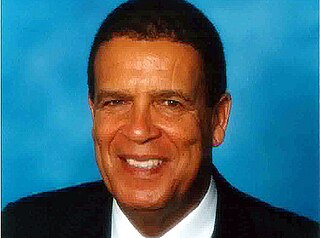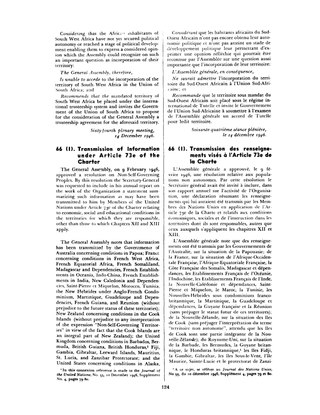
Bermuda is a British Overseas Territory in the North Atlantic Ocean. The closest land outside the territory is in the American state of North Carolina, about 1,035 km (643 mi) to the west-northwest.

Bermuda was first documented by a European in 1503 by Spanish explorer Juan de Bermúdez. In 1609, the English Virginia Company, which had established Jamestown in Virginia two years earlier, permanently settled Bermuda in the aftermath of a hurricane, when the crew and passengers of Sea Venture steered the ship onto the surrounding reef to prevent it from sinking, then landed ashore. Bermuda's first capital, St. George's, was established in 1612.

The British colonization of the Americas is the history of establishment of control, settlement, and colonization of the continents of the Americas by England, Scotland, and, after 1707, Great Britain. Colonization efforts began in the late 16th century with failed attempts by England to establish permanent colonies in the North. The first of the permanent English colonies in the Americas was established in Jamestown, Virginia, in 1607. Colonies were established in North America, Central America, South America, and the Caribbean. Though most British colonies in the Americas eventually gained independence, some colonies have remained under Britain's jurisdiction as British Overseas Territories.
This is a demographyof the population ofBermuda including population density, ethnicity, education level, health of the populace, economic status, religious affiliations and other aspects of the population, including changes in the demographic make-up of Bermuda over the centuries of its permanent settlement.

Bermuda is the oldest British Overseas Territory, and the oldest self-governing British Overseas Territory, and has a great degree of internal autonomy through authority and roles of governance delegated to it by the national Government. Its parliament held its first session in 1620, making it the third-oldest continuous parliament in the world. As part of the British realm, King Charles III is head of state and is represented in Bermuda by a Governor, whom he appoints on the advice of the British Government. The Governor has special responsibilities in four areas: external affairs, defence, internal security, and policing.

The British Overseas Territories (BOTs) are the fourteen territories with a constitutional and historical link with the United Kingdom that, while not forming part of the United Kingdom itself, are part of its sovereign territory. The permanently inhabited territories are delegated varying degrees of internal self-governance, with the United Kingdom retaining responsibility for defence, foreign relations, and internal security, and ultimate responsibility for "good" governance. Three of the territories are chiefly or only inhabited by military or scientific personnel, the rest hosting significant civilian populations. All fourteen have the British monarch as head of state. These UK government responsibilities are assigned to various departments of the Foreign, Commonwealth and Development Office and are subject to change.

Sir John William David Swan is a former Bermudian politician. A real estate developer, Swan was Premier of Bermuda from 1982 to 1995.
In Australia, referendums are public votes held on important issues where the electorate may approve or reject a certain proposal. In contemporary usage, polls conducted on non-constitutional issues are known as plebiscites, with the term referendum being reserved solely for votes on constitutional changes, which is legally required to make a change to the Constitution of Australia.
The Bermudian dollar is the official currency of the British Overseas Territory of Bermuda. It is subdivided into 100 cents. The Bermudian dollar is not normally traded outside Bermuda, and is pegged to the United States dollar at a one-to-one ratio. Both currencies circulate in Bermuda on an equal basis.
The United Bermuda Party (UBP) was a political party in Bermuda, which represented itself as centrist party with a moderate social and fiscal agenda. The party held power in Bermuda's House of Assembly continuously from 1968 to 1998, the 47-year-old party was dissolved on 30 June 2011 after the majority of its members joined the One Bermuda Alliance.

The Progressive Labour Party (PLP) is one of the three political parties in Bermuda. At the 18 July 2017 general election, the party won 24 of the 36 seats in the Bermudian House of Assembly to become the governing party. The party was founded in 1963, the first political party in Bermuda, and the oldest still active. It formed government from 1998 to 2012, and again since 2017.

Chapter XI of the United Nations Charter defines a non-self-governing territory (NSGT) as a territory "whose people have not yet attained a full measure of self-government". Chapter XI of the UN Charter also includes a "Declaration on Non-Self-Governing Territories" that the interests of the occupants of dependent territories are paramount and requires member states of the United Nations in control of such territories to submit annual information reports concerning the development of those territories. Since 1946, the UNGA has maintained a list of non-self governing territories under member states' control. Since its inception, dozens of territories have been removed from the list, typically when they attained independence or internal self-government, while other territories have been added as new administering countries joined the United Nations or the UN General Assembly (UNGA) reassessed their status.

The governor of Bermuda is the representative of the British monarch in the British overseas territory of Bermuda.

General elections were held in Bermuda on 18 December 2007 to elect all 36 members of the House of Assembly. The incumbent Progressive Labour Party (PLP) led by Ewart Brown was returned for a third term, with 22 of the 36 seats of the House of Assembly, with the opposition United Bermuda Party (UBP) winning the remaining 14 seats.

Lesbian, gay, bisexual, and transgender (LGBT) people in Bermuda, a British Overseas Territory, face legal challenges not experienced by non-LGBT residents. Homosexuality is legal in Bermuda, but the territory has long held a reputation for being homophobic and intolerant. Since 2013, the Human Rights Act has prohibited discrimination on the basis of sexual orientation.
The Militia of the British Dominions, Self-Governing Colonies, and Crown Colonies were the principal military forces of the Dominions, Self-governing colonies and Crown Colonies of the British Empire.

The island groups of Orkney, Shetland and the Western Isles are all currently regions of Scotland. Their constitutional status has periodically been discussed, for example during the Scottish independence referendum campaign. Currently, they are council areas with the same constitutional status as the other 29 local government areas. The three island councils are the only local authorities among the 32 in the country where independent councillors form a majority.
Ann Frith Cartwright DeCouto was a Bermudian politician, lawyer and a member of the former United Bermuda Party (UBP). She served as a member of the House of Assembly of Bermuda 1983 until 1998, which included a tenure as Deputy Premier from 1989 to 1992 under Premier John Swan, as well as the head of several government ministries under the UPI during the 1980s and 1990s. Cartwright DeCouto was perhaps best known as the island's Minister of the Environment, also from 1989 to 1992. In 1990, she enforced a ban on fishing with fishpots in Bermudian waters, a move which was highly unpopular at the time. However, Cartwright DeCouto's ban on the fishpots is now widely credited with reviving Bermuda's fish stocks.
Same-sex marriage is currently not recognised nor performed in Bermuda, a British Overseas Territory, but it was legal between 2017 and 2022. However, marriages performed during that period remain valid.
Cannabis in Bermuda is legal for medical use and decriminalized for recreational use.












